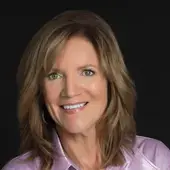By Bruce Helmer and Peg Webb, Financial Advisors at Wealth Enhancement Group and co-hosts of “Your Money” on WCCO AM 830 on Sunday mornings. Email Bruce and Peg at yourmoney@wealthenhancement.com. Advisory services offered through Wealth Enhancement Advisory Services, LLC, a registered investment advisor and affiliate of Wealth Enhancement Group.
As financial advisors, we spend most of our time helping clients look forward. But some of the most valuable insights we’ve ever encountered and incorporated into the advice we give come from older people looking back.
In recent years, we’ve made a point of asking septuagenarian and octogenarian clients what they wish they had done differently with their money. Their answers, presented here in composite form, are honest, sometimes emotional and often strikingly similar (names have been changed for privacy). If you’re in your 40s or 50s and are just now getting serious about your financial life, these reflections could save you years of stress and regret. They also contain useful nuggets of wisdom for younger investors.
“I waited too long to get serious.”
Harold, 83, a retired business owner, spoke plainly: “I always thought I had more time. More time to save, to plan, to start. But time sneaks up on you—and then it’s gone.”
Many mid-career folks misperceive the power of compounding. They spent their 30s and 40s assuming they could “make up for it later,” only to find that later is an expensive time to start building wealth. If you’re earning well now, maxing out retirement accounts and investing aggressively should be a priority (but wisely, using effective diversification and tax-smart strategies).
“I lived too large when I should have saved more.”
One of our most financially secure clients, Eleanor, 79, said something unforgettable: “We lived modestly even when we didn’t have to. That’s the reason we were able to travel in our 70s and help the grandkids with college. No fancy cars were worth that.”
Living below your means is the bedrock of financial independence. Regardless of income level, those who focused on savings and delayed gratification in midlife are often the ones who enjoy the greatest freedom in retirement.
“I didn’t prepare for health care costs.”
Frank, an 84-year-old retired engineer, shared a painful truth: “I thought I was healthy enough to never need long-term care. I was wrong, and it cost us more than I ever imagined.”
Medical expenses and long-term care can derail even a well-planned retirement. Planning early, by considering long-term care insurance or building specific savings buckets for health-related costs, is essential—especially for high-net-worth individuals.
“I stayed invested, and I’m glad I did.”
The most experienced investors understand that financial markets move in cycles, and over longer time periods, they have always recovered from downturns. George, now 80, revealed an enduring truth: “In 2008, I almost sold everything. But I remembered what my father told me: never make big decisions on your worst day. So I stayed in, and I’m glad I did.”
The lesson? Emotional decisions are the enemy of long-term investing. Staying the course often beats trying to time the market, especially when your time horizon is decades, not days.
“Giving while you’re alive is more rewarding than waiting.”
Lucille, 85, lit up when she told us about helping her daughter launch a business: “The best check I ever wrote was to my daughter when she started her own business. I got to see her thrive. That joy? You can’t buy that at 85!”
For those with the means, strategic lifetime giving can be deeply fulfilling and tax-efficient. Don’t wait until your estate plan executes to experience the joy of generosity, whether you’re giving to family or charitable causes.
What you can do now
If you’re in your peak earning years, this is the time to act, not “someday soon.” Do a “regret audit”: What would your 80-year-old self wish you’d handled differently today? Here are four immediate next steps:
- Max out your 401(k), Roth IRA, and HSA, and consider opening a brokerage account for investment and tax diversification.
- Stress-test your retirement income plan and make revisiting it an annual or semiannual habit.
- Plan for unexpected longevity—financially, medically and emotionally.
- Talk to your spouse, kids and advisor about your long-term wishes now, not later.
Ruth, 87, summed it up perfectly: “If I could go back, I wouldn’t chase more money. I’d chase more freedom. Freedom comes from knowing what’s enough.”
You don’t need to be perfect. You just need to start. The people who’ve lived through decades of financial ups and downs are telling us what really matters. The question is: Are you ready to listen?
See the whole article in Pioneer Press.
The opinions voiced in this material are for general information only and are not intended to provide specific advice or recommendations for any individual.
#2025-8019



